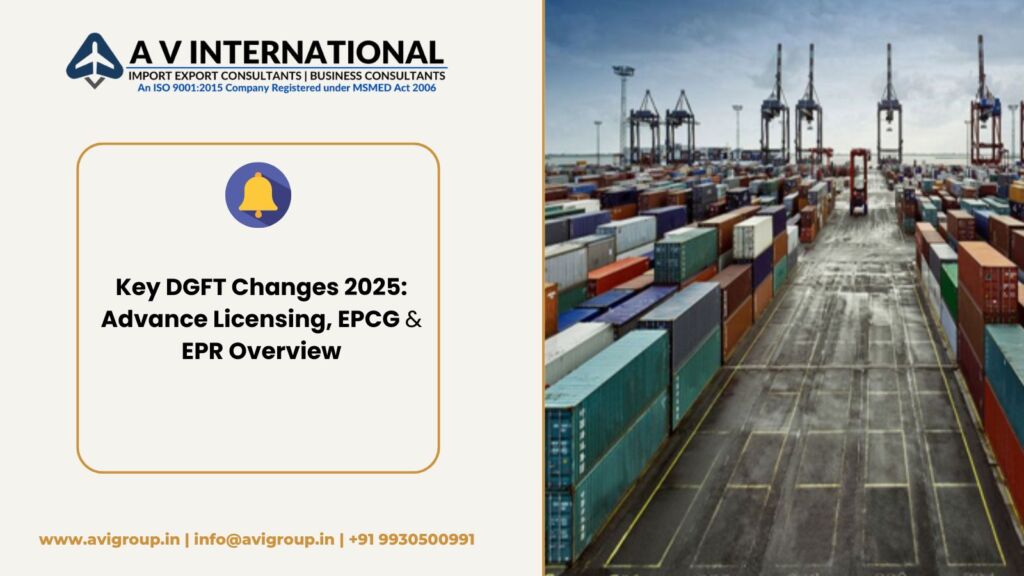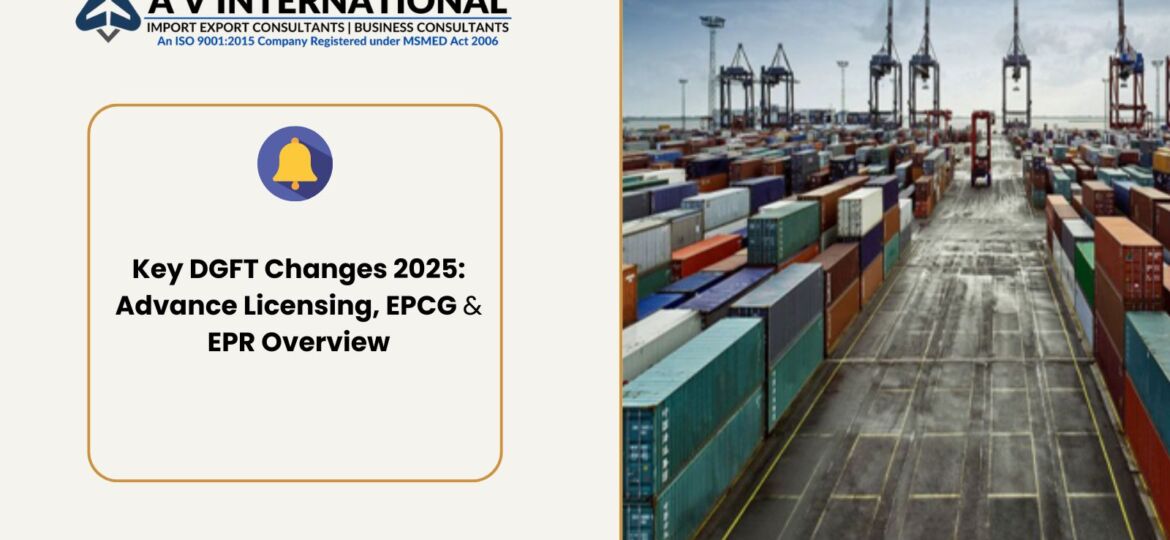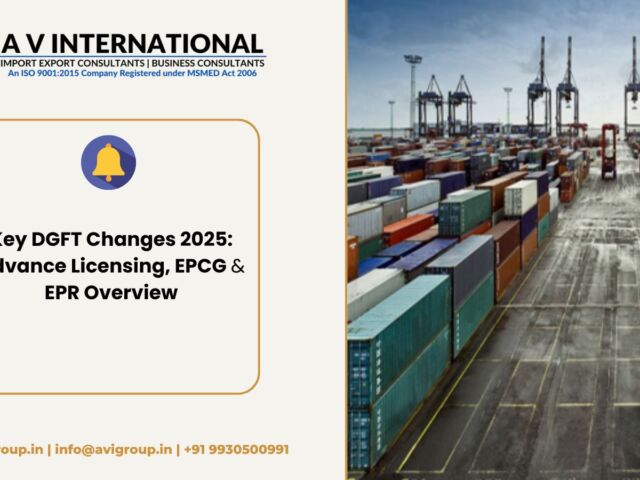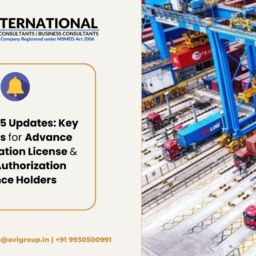Key DGFT Changes 2025: Advance Licensing, EPCG & EPR Overview

DGFT Updates 2025: What Exporters and Importers Should Know About Advance Authorization, EPCG Licenses, EPR Registration
Introduction
In 2025, DGFT continues to strengthen India’s foreign trade ecosystem, announcing vital notifications and updates for exporters and importers across India. Following compliant rules and regulations updates is critically important not only for achieving efficient trade across borders, but also to gain commercial and compliance benefits to address the challenges of the global marketplace.
In this article, we will explore the latest DGFT updates around the Advance Authorization License, EPCG Authorization License, EPR Registration for E-waste and Plastic/Battery Waste, This article will set you up in compliance in 2025 no matter if you are an experienced trader or new to these schemes.
Advance Authorization License: Digital and Flexible Compliance
DGFT has digitized the Advance Authorization license and the process for application and amendments, which allows the expedited duty-free import of the inputs necessary for exports. In addition, the eligibility for benefits has been modified in that previously restricted conditions for eligibility has been relaxed for duty-free benefits, provided that the Bill of Entry filing date is post issue date of the license, irrespective of the shipment receipt date.
Best Condensed Tips:
Always apply and amend using the DGFT digital portal.
Ensure that the documentation is compliant with the benchmarks of the relevant Quality Control Orders (QCO).
Record and monitor the export obligations and license timeframe to avoid non-compliance penalties.
EPCG Authorization License: Stricter export obligations and duty benefits
Managed solely for capital goods imported for export production purposes, EPCG license holders very stringent obligations to be tracked in 2025. A mandatory export value six times what was paid in duty, within a maximum of six years. Digitization improvements will vastly reduce paperwork while product classifications that the user is bound to will protect against customs disputes.
Best Practices:
Maintain records of all export shipments with obligations.
Confirm compliance for capital goods under obligation when documentation refers to QCOs.
Use website / digital platforms to amend applications and monitor export obligations.
EPR Registration: Environmental Compliance in Waste Management
EPR (Extended Producer Responsibility) Registration has quickly become essential for businesses that deal with e-waste, plastic waste, and battery waste. DGFT (Directorate General of Foreign Trade) requires producers, importers of products, and brand owners to register and comply with waste collection, recycling, and disposal regulations.
Steps in Practice:
Register as soon as possible under the EPR scheme for the relevant waste stream categories.
Work with authorized recyclers to handle and arrange disposal of wastes.
Record waste collected and recycled to provide evidence of compliance.
Conclusion
If Indian exporters and importers follow DGFT’s most recent announcements, especially in regards to Advance Authorization and EPCG License and EPR registration, they should find their operations in compliance, efficient, and prepared for the future. Understanding these notifications and how to use digital means to work with waste will be essential in finding success through global trade this year.
DGFT
Legal
Company Secretarial
DGFT Notifications
Others
Recent Posts
- Top Export Compliance Mistakes: DGFT Advance Authorization, EPCG & CPCB (2025 Guide)
- Environmental Clearance CPCB Quick Guide for Exporters
- DGFT e-BRC Rule 2025: Key Update for Advance Authorization & EPCG Holders
- Key DGFT Changes 2025: Advance Licensing, EPCG & EPR Overview
- DGFT 2025 Updates: Key Changes for Advance Authorization License & EPCG Authorization Licence Holders
- DGFT Notifies 3 New SIONs: A-3690, A-3691 & A-3692
- DGFT allocates 5841 MT for Sugar Export
- DGFT Eases Export Rules for Pharma Grade Sugar – Key Changes in ANF-2N Form
FeATURED ARTICLES
Top Export Compliance Mistakes: DGFT Advance Authorization, EPCG & CPCB (2025 Guide) Exporting in India can feel like a legal…
Environmental Clearance CPCB: Quick Guide for Exporters If you’re an Indian exporter or manufacturer working under schemes like the Advanced…
DGFT e-BRC Rule 2025: Key Update for Advance Authorization & EPCG Holders The Directorate General of Foreign Trade (DGFT) has…
Key DGFT Changes 2025: Advance Licensing, EPCG & EPR Overview DGFT Updates 2025: What Exporters and Importers Should Know About…







